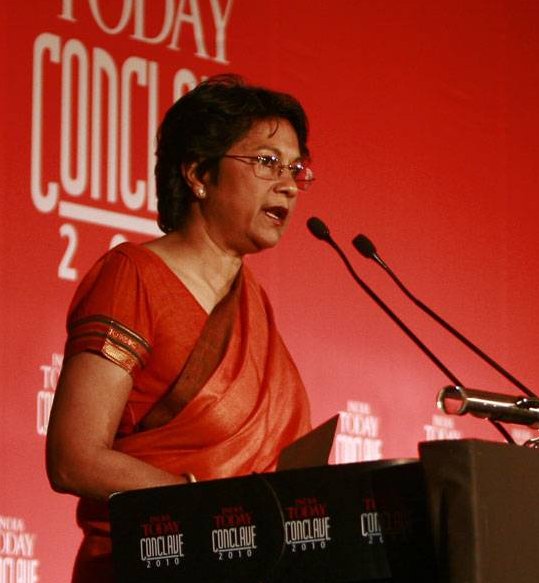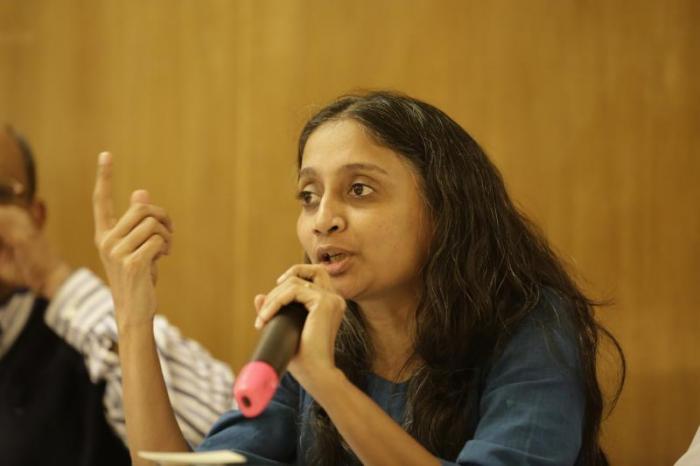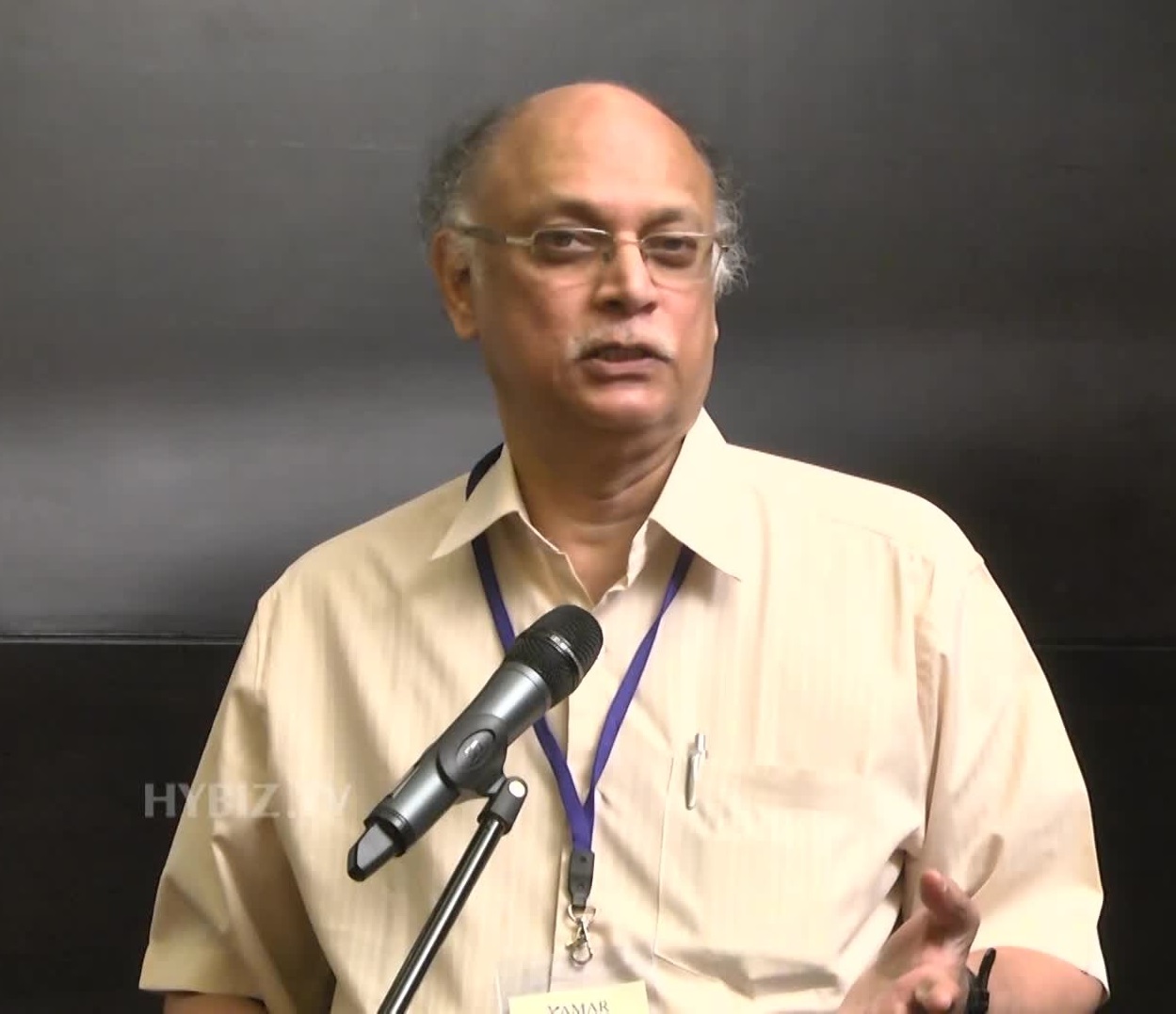Interviewing NGOs
Dr. Suman Sahai, Chairperson, Gene Campaign
Dr. Suman Sahai, has had a distinguished scientific career in the field of genetics, was awarded the "Padma Shri" in 2011. In 2004, she received the Borlaug Award for her outstanding contribution to agriculture and the environment. Dr. Sahai has a Ph.D. in genetics and has served on the faculties of the University of Alberta, University of Chicago, and the University of Heidelberg. She was appointed Knight of the Golden Ark (Netherlands) in 2001 for generating awareness about the importance of genetic resources to food security. Dr. Sahai is founder Chairperson of the Gene Campaign which is a leading research and advocacy organization, working on issues relating to food, nutrition and livelihoods.
In our skype interview with her. She talked about technical, economical and political issues of GM technology as such and in the context of India. Her views can be described as followings:
In Genetic Modification technology, we perform changes in the genetic makeup of cells e.g. adding extra genes form different species or deleting a gene. Such gene alterations can have new unwanted product and it has been found in case animal models, mice models, which were fed with GM foods. There are serious Bio-safety issues with GM organisms. Certain parameters are almost impossible to be tracked such as the changes in the genetic makeup of cells over generations e.g. jumping genes, confirmation of the desired genetic changes in the cell over generation, huge cost for genome wide sequencing to see if the modifications has not happened in other part of genome. Overall, Bio-safety tests should be more stringent and should give information regarding genome and gene propagation. From economical and political point of view, any technology should not be thrown upon the public, its adoption should be done democratically, which is only when it's requirement and necessity is felt. Therefore, it is necessary to perform cost & benefit analysis on any GM product. As GM technology possess certain risks like any other technology, risk & benefit analysis should also be performed. If we look at the journey of GM technology, it hasn't done any significant benefit to the community yet. So, we might need to start looking for alternative ways to solve our problems e.g. use of pest control measures instead of Bt in Bt-cotton or pesticides. The biggest problem of the Indian agriculture system is water crisis because 70% of our agriculture dependent on monsoon.
On the issue of past and present Indian governments handling field trial, permission for cultivation of GM crops, she believes that open field trials are done with carelessness and there is a huge risk of spreading of GM seeds into environment. Farmers should be consulted before doing field trials in their field. They should also be well informed about the implications of GM crops.
When asked about the awareness regarding GM technology implications among consumer and farmers, she asserted that awareness level is very very low and there is a need for public and private funded awareness programs and workshops to educate farmers and consumers. Regarding the patent regime in the country, she was completely the monopolization of seeds via GM seed patenting as they would increase the cost of seeds and take away the freedom of farmers.
Kavitha Kuruganti, ASHA Convener
She is one of the conveners of ASHA Kisan Swaraj Alliance (Alliance for Sustainable & Holistic Agriculture), which is a network of people committed to a cause (not an NGO). She is a part of the not-for-profit social enterprise that seeks to revive organic Indian cotton in a garment value chain called TULA.
Her activities : Protest against the govt. Permission to Monsanto for open field trials. Her claims and reasoning against GM are:
1. Transgenics are unsustainable and incompatible with agro-ecological, organic farming, apart from being potentially detrimental to consumer health and conservation of biodiversity as one of the bedrocks of economic and ecological sustainability.
2. Control of seeds into the monopolistic hands of a few multinational seed corporations.
3. The unproven claims of benefits of GM crops are not needed.
4. No direct benefit to consumers.
5. GM crops are largely unsustainable in their reliance on external, non-renewable inputs.
6. Precision of genetic engineering has been shown to be a myth by many scientific studies.
7. More use of insecticides because of superweeds.
8. A continuous production of insecticide reduces soil microbial activity.
9. GMs are a diversion to a problem, which solution already exists.
10. A thorough experimentation should be performed before putting the GM crops into the environment.
11. Lack of transparency in giving nod to GM Mustard by Delhi University.
Genetic Engineering Approval Committee, India
Dr. Sesikeran, former chairman of RCGM (Review committee on Genetic manipulation- India), former director of NIN (National Institute of Nutrition). He was one of the prominent persons involved in approving of GMO related research/products in india. He was kind enough to have a conversation with us through mobile phone. He was answering our questions in both ethical and technical ways.
1. How do you ensure the reliability of GMOs as genetic modifications are uncertain and can possibly affect the genetic makeup of them/other interfering organisms?
In earlier days also genetic manipulations were done in labs which involved getting random mutations by radiation. Now better technologies to specifically modify a gene have been developed which is surprisingly becoming more questionable among the society. Artificial human insulin which is saving the life of many diabetic patients is also a product of a GMO which has not got into any heated debates. With this we can understand the scope of genetic engineering techniques to the mankind and should deal with things more scientifically. (The basic tests done to ensure the stability of the gene in an organism is discussed in the following questions). Talking about ‘jumping of genes’ or horizontal gene transfer from one organism to another, it is a theoretical phenomenon (observed in labs between microorganisms) which is not observed practically in crop fields.
2. How the effect of GMOs on the environment such as soil and other flora and fauna is estimated?
Some of the foreign countries have grown GM crops for years and have not been reported with any considerable harmful effects. This gives us the motivation to start with the discussion of conducting field trials to assess the long term effects in India.As part of regular approval process extent of pollen transfer, soil nutrition analysis, effect on useful bees and insects and so many other tests are performed in confined fields. Before going into analyzing the effects on soil, the crop is grown for 3-4 generations for achieving gene stability of the inserted gene in a location. Multi Location studies are done. GEAC seeks data of two levels of biosafety research trials for 3 crop season in different locations (usually 15 locations- 5 locations per crop season*3). For one location only one trial is conducted.
3. If somebody comes up with an effective new GM crop with certain benefits, they also come with unknown risks so could you please comment on the risk-benefit analysis being done to get to a conclusion before proceeding with the research?
Frequent usage of mobile phones has the potential hazard of leading to brain tumors but still it is introduced and used by almost all as the percentage of risk associated is very less. Here the benefits outweigh the risks. We analyze the risks associated with an organism by looking at things like whether it has got a foreign protein due to modification. ‘Compositional equivalence’ (compositional analysis with the non GM counterpart) is done to ensure that gene modifications and not leading to secretion of any other hazardous proteins. Other studies like ground water pollutant level, toxicity analysis is also done to ensure safety. We go further and approve a crop if the benefits of it outweigh the possible risks which are highly improbable.
4. 'As farmers are the main gain takers of GM crops with its comparative high yield, how do you ensure that they are well aware about what they are cultivating?
[kvks- http://krishi.icar.gov.in/Index.jsp Krishi] vigyan kendras are set up to aware the farmers and provide them information about seed variety, kind of insects attacking a particular crop, and many field demonstrations.
5. We also spoke with members of Gene campaign and Asha, one of their main concerns was there are other safe cultivation methods which could be effective if implemented properly. Please comment on the necessity of GM crops.
Other yield increasing cultivation methods involve hybrids where random characters are mixed and getting our favourable character is uncertain. It is time consuming and not efficient. No other methods have produced insecticidal and high yielding crops like GM technology.
6. How do you tackle insect developing resistance to the crop’s killing nature due to insecticidal crops?
This problem of insects developing resistance is existing from olden days even with use of pesticides. Only a small population of the insects were found to develop resistance and there comes an issue if they start to transfer those genes either horizontally or vertically. One of the effective ways is to cultivate a very small percentage of non-bt crop over the perimeter of the land where bt crop is cultivated. Thereby reducing the chance of resistant genes being transferred to large part of the population. This method was found effective and other methods like using a small percentage of pesticides is also done.
7. As 70% of the population of india is involved in agriculture, should patenting of crops be promoted?
This is still under discussion where a balance should be made between protecting the intellectual rights of an innovator and the farmers from paying high amount of money for their seeds. If patenting is allowed, at first, GM seeds will be comparably costlier than non- GM but it is expected as it’s output are comparatively high. Talking about reduction in efficiency levels in some areas of india (Bt cotton issue), GM crops are highly target specific. It kills only certain species of insects. It might not be effective in certain locations as the pests might vary.
The talk was very informative and it helped us in explaining to the public about GMOs in an effective manner.
Educating Farmers and public




